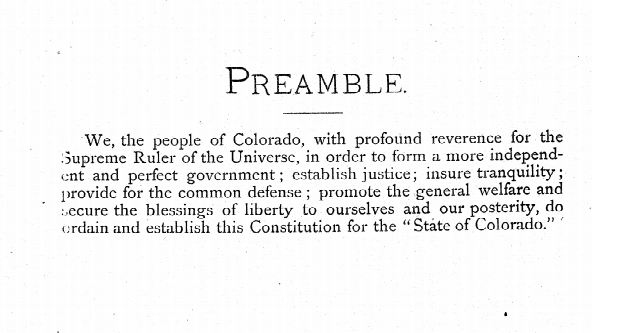Some of the measures on your 2016 ballot are not intuitive. The language can be convoluted for legal reasons and amendments might use technical terms that are outside our daily usage. So we do what all modern Americans do, and we turn to the internet.
Colorado voters have been Googling a variety of items on their ballot in recent weeks, but none more in recent days than Amendment T and Amendment U.
And we've seen this in the most-read Denverite stories as well.
Amendment T, which removes any allowance for slavery from the Colorado constitution, and Amendment U, which deals with taxes for people who use public land for private business ventures, don't have particularly prominent campaigns around them, so a lot of voters aren't familiar with them when they sit down to vote.
Denverite can help you understand these and all your Colorado and Denver ballot measures if you haven't cast your ballot yet.
Colorado ballot guide: Learn about the rest of this year's ballot measures.
Amendment 69 would implement a single-payer health care system paid for with a 10 percent payroll tax.
Amendment 70 would raise the minimum wage to $12 an hour by 2020.
Amendment 71 would make it harder to amend the state constitution going forward.
Amendment 72 raises cigarette taxes.
Proposition 106 allows for physician-assisted suicide for people diagnosed with terminal illness.
Proposition 107 would create a presidential primary to replace the party-run caucuses and allow unaffiliated voters to vote in that primary.
Proposition 108 would allow unaffiliated voters to vote in non-presidential primary elections.
In seven-county Denver metro area
Ballot Issue 4B extends the 0.1 percent sales tax that funds the Science and Cultural Facilities District until 2030 and changes how the money is allocated among small, medium and large institutions.
And for Denver voters:
Referred Question 2A allows the city to retain additional taxes collected under the sales tax that funds the Denver Preschool Program.
Referred Question 2B incorporates the Office of the Independent Monitor into the city charter so that a future mayor or city council could not get rid of it.
Initiative 300 creates a pilot program to allow public consumption of marijuana. Businesses could apply for a permit for a designated consumption area in a process similar to seeking a liquor license.












